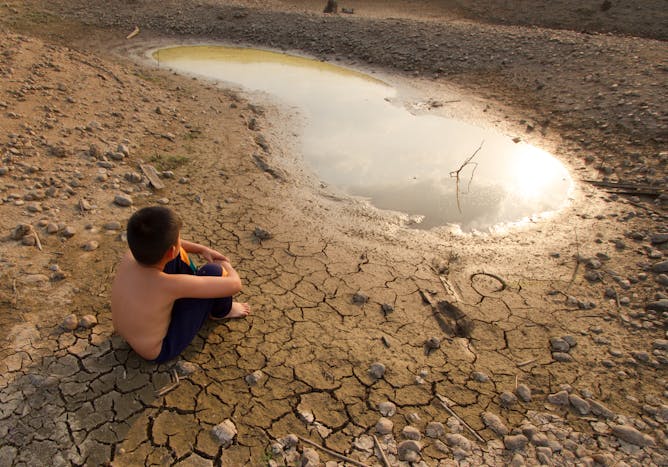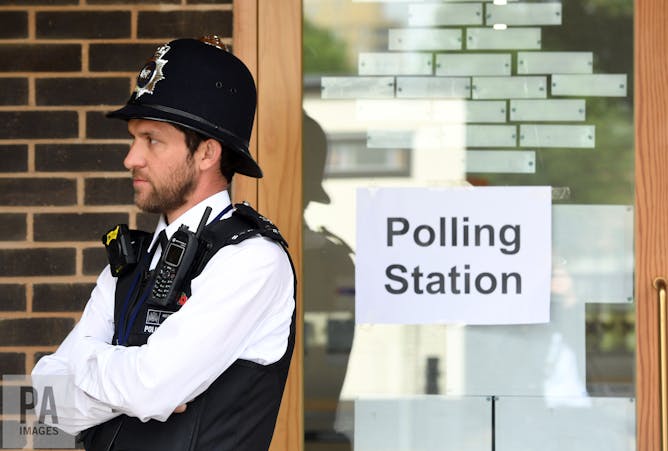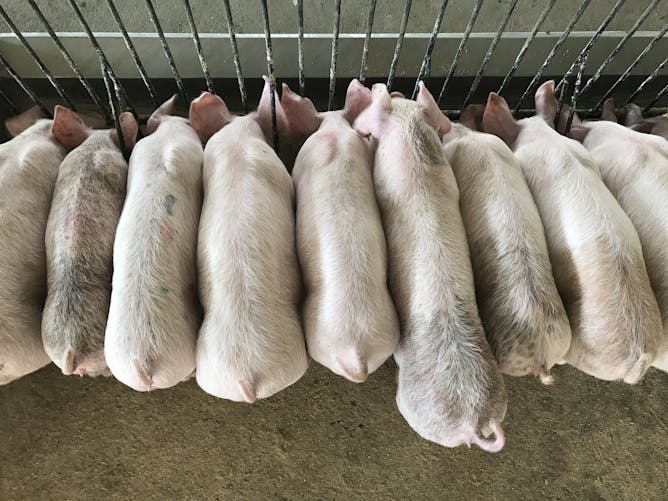|
|
|
|
| |
|
Editor's note
|
|
As the world warms, many worry that conflicts over scarce food and water will erupt into full blown “climate wars”. But climatologist Mark Maslin has investigated climate change and conflict in East Africa and found little evidence of a link between the two. Wars were more associated with poverty and population growth than any environmental changes. With good stable governance, Maslin argues, there is no reason why global warming should lead to greater conflict.
A pilot requiring some voters to show ID in the forthcoming local elections in England could become the next battleground in the Windrush scandal. Toby James plans to gather data to see if anyone misses out on exercising their democratic rights as a result of the scheme – particularly this group. This situation has of course been made so much worse by a decision at the Home Office to destroy documents that could help Windrush arrivals prove their status in the UK. It’s a timely reminder of how important archives are, writes Dora Vargha, and how we rarely
realise it until something goes wrong.
In the aftermath of the 2001 foot-and-mouth epidemic – in which six million animals in Britain were culled – the use of all food wastes in animal feed was banned across the EU. But was this the right response? New research suggests that it’s time to reconsider using swill to feed animals – the environmental and economic potential is huge.
|
Will de Freitas
Environment + Energy Editor
|

|
|
Top stories
|

Piyaset / www.shutterstock.com
Mark Maslin, UCL
We looked at ten countries in East Africa and found poverty and politics were much more important drivers of conflict and displacement than climate change.
|

Sanwal Deen/Unsplash
Dora Vargha, University of Exeter
The Home Office threw away landing documents that are now vital to people trying to prove their right to stay in the UK.
|

PA/Victoria Jones
Toby S James, University of East Anglia
A pilot requiring some voters to show ID in May's local elections could be the next blow for the Windrush generation.
|

Thuwanan Krueabudda/Shutterstock.com
Erasmus zu Ermgassen, University of Cambridge
There's plenty of evidence that modern swill-feeding would be safe, sustainable, and popular.
|
Science + Technology
|
-
Mark Lawler, Queen's University Belfast
It's 65 years since the structure of DNA was first published, but the woman who made that possible remains unknown to many people.
-
Iryna Kuksa, Nottingham Trent University; Tom Fisher, Nottingham Trent University
Personalisation has made decisions easier and quicker – but it is still large corporations, rather than individual users, who benefit most.
-
Saber Fallah, University of Surrey
Cities are adapting to the needs of driverless cars. Here's how.
-
Polina Zioga, Staffordshire University
Interactive cinema and the arts are at the forefront of research into brain-computer interaction.
|
|
Politics + Society
|
-
Glenn Hanna, University of Guelph-Humber
The Toronto cop who apprehended the van attack suspect is being lauded internationally for refraining from using deadly force as he apprehended him. Here's how everything went right for the constable.
-
Liza Schuster, City, University of London
An attack on a voter registration killed at least 57 people, and left scores more deciding where to go now.
|
|
Business + Economy
|
-
Ornette D Clennon, Manchester Metropolitan University
At Starbucks, where the staff turnover is lower than most, anti-bias training might make a small difference. Maybe.
|
|
Health + Medicine
|
-
Rajvinder Samra, The Open University
Being more caring could lead to more female doctors burning out.
|
|
| |
Featured events
|

|
Brunel University London, Uxbridge, Hillingdon, UB8 3PH, United Kingdom — Brunel University London
|

|
Vaughan Jeffreys Lecture Theatre, Education Building, Edgbaston Campus, Birmingham, Birmingham, B15 2SB, United Kingdom — University of Birmingham
|

|
Essex Business School, Wivenhoe Park, Colchester, Essex, CO4 3SQ, United Kingdom — University of Essex
|

|
Richmond Building, Portland Street, Portsmouth, Hampshire, PO1 3DE, United Kingdom — University of Portsmouth
|
|
|
|
| |
| |
| |
| |
| |
|
|
|
|
|
|
|